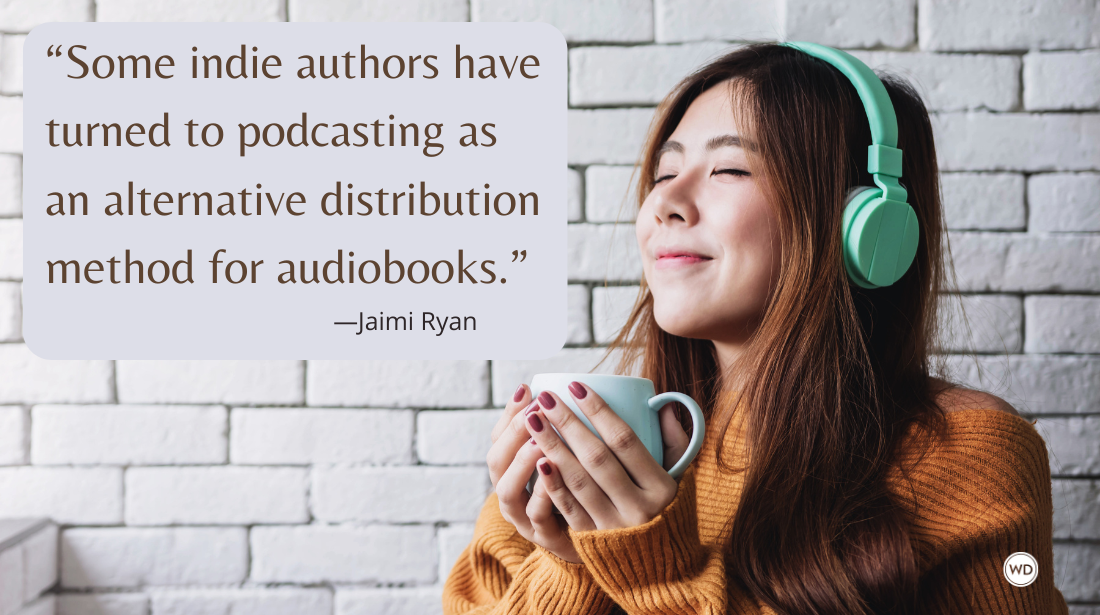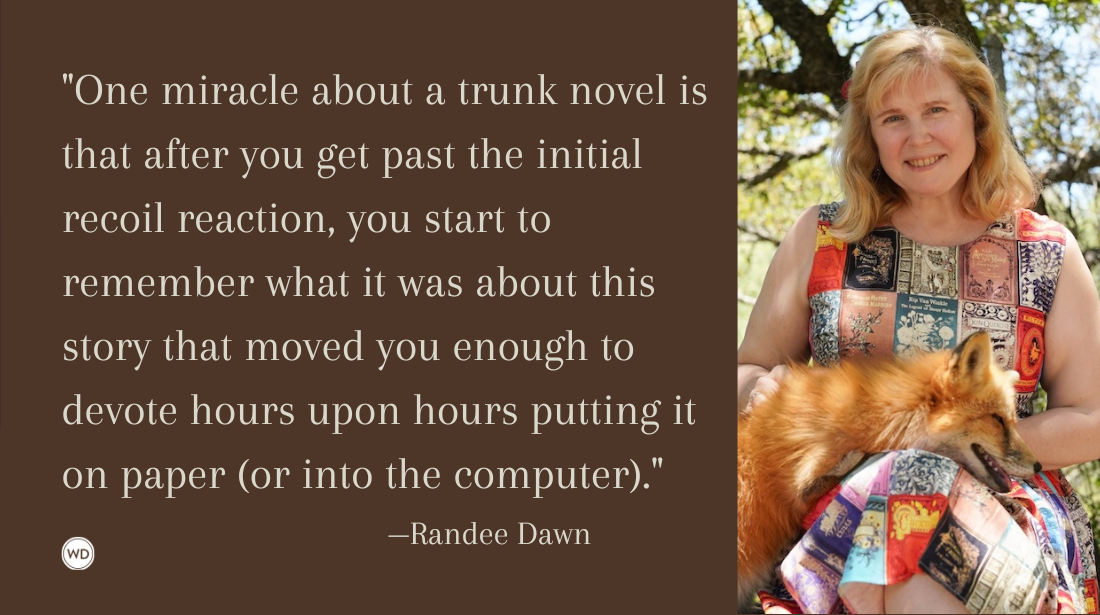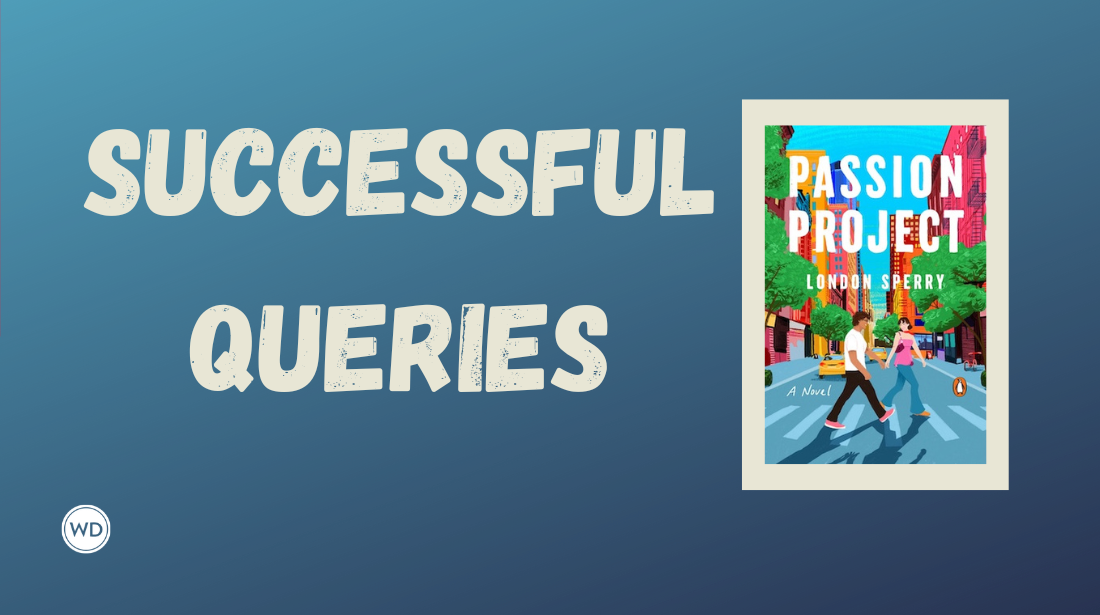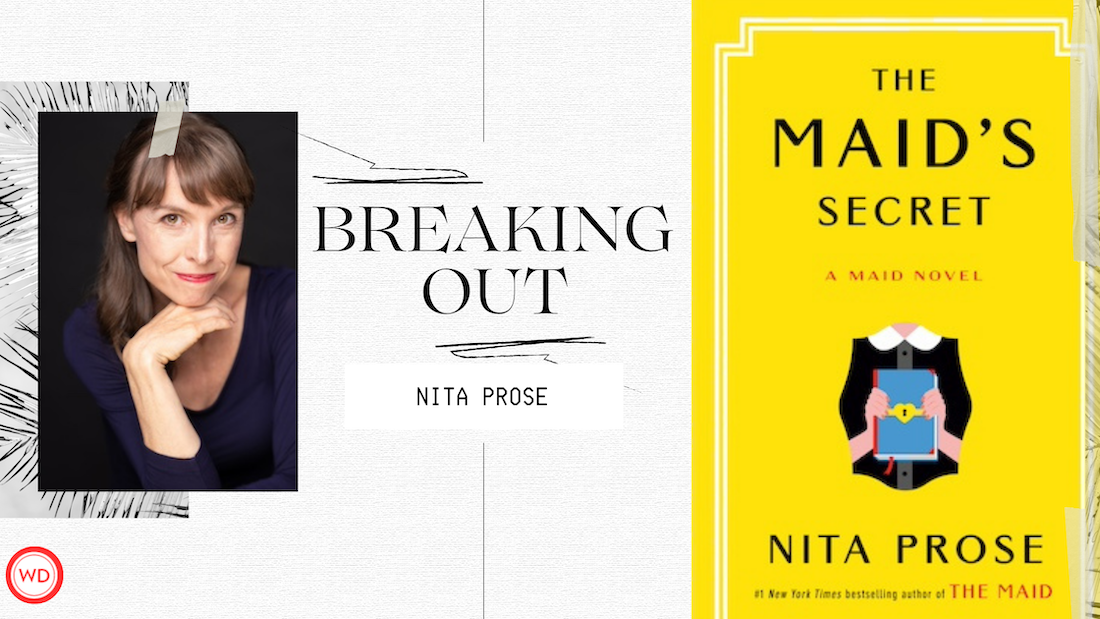Answers to 14 Questions You’re Too Afraid to Ask Literary Agents
Do agencies really read every query letter? Do agents ever go through the slush pile? Get answers to what you’ve always wanted to know but have been afraid to ask, thanks to this leading literary agent who is willing to give it to you straight.
As an agent of more than five years with the Irene Goodman Agency, I am oftentimes approached at writing retreats, conferences, children’s birthday parties, nail salons, shooting ranges and quinceañeras, and asked a variety of questions about my take on the inner workings of the publishing industry. I have no problem straight-shooting the goods in those moments (“Honestly, Father McKenna? I think a young adult series based on Fifty Shades of Grey is a terrible idea …”) and in fact quite enjoy the discourse.
Earlier this year, Writer’s Digest reached out and invited writers everywhere to anonymously—without fear of judgment or need to be overly polite—submit the questions they’d always secretly wanted to ask a literary agent, but had been afraid to voice. When WD then approached me and asked if I’d be willing to answer a selection of those questions in print—and to do so with a level of candor that writers would be hard-pressed to find elsewhere—I applauded their creativity and immediately grabbed my thinking cap (read: flask) and dove in.
by Barbara Poelle
I found the questions to be insightful, and I hope I did the responses justice. If not, I am not Barbara Poelle—I am Enid Snarklefritz and I have anger management issues.
A few ground rules heading in (imagine a bespectacled man in an ill-fitting brown suit standing over me and dictating in a nasally voice): These answers are mine and mine alone, and I do not presume to speak for the industry at large (or for WD). Take what you’re about to read in the spirit in which it’s intended: as one agent’s honest take on the subjects at hand. Nothing you read here is meant to be direction on how to embark, sustain or engage in a publishing career, nor should you assume there is any specific path to success based upon my responses. There are lots of ways to skin a thunder lizard. (That last part is me, not the guy in the suit.)
So let us begin to see what you can learn when you … Ask an Agent Anything!
Query Queries
Dear Agent: A lot of agencies’ websites say they read every query. But I could say the same thing about all the junk mail I receive. How much time do you really spend looking at each query—as in, average seconds per query letter? Give it to me straight. I can take it.
This reminds me of the time I got curious and ordered my sister to hit me as hard as she could, to see if I could take it. She looks like Reese Witherspoon and weighs maybe 101 pounds soaking wet with rocks in her pockets, but she went ahead and cranked me a teeth-rattler on the arm that I feel fairly certain created some sort of embolism that is just waiting to travel to my brain like a gift that keeps on giving.
That is a preface to say: Ground yourself; this one might be a molar-shaker.
Sometimes it really is only, say, four seconds; a first line can close it down for me (e.g., the one I got that opened with, “What if it was your job to kill babies?”). Often the deal breaker is elsewhere in the first paragraph, when I see yet another Hezbollah/North Korea/China terrorist thriller plot, or an estranged daughter coming back to the small town to deal with her ailing mother, expose family secrets and rekindle love with her high school flame. Or sometimes it’s at a point later in a query when I am insulted, belittled or offended (yup, those happen too).
In general, I just stop the second I realize the story is just not for me. But average time per query aside, I can assure you this: I do look at ’em all.
Dear Agent: I and other aspiring writers have sent queries to agents and never heard a thing in response, not even a formulaic “not interested.” This appears downright rude to me. Is this an accepted mode of “interaction” these days, and what are we to make of an agent who doesn’t bother to respond to queries? I recognize that agents can get a lot of queries, but isn’t that what keeps them in business?
You nailed it: There’s gold in them there query hills. About 60 percent of my list comes from unsolicited queries. And I truly sympathize with this complaint, as it is indeed something that bothers me as well. But, while there are of course agents out there who respond to each and every query, quite frankly, they are better humans than I for doing so.
Now, hear me out. I hire a fifth-grader to do my math for me, so I’m just ballparking here, but I get about 12–20 queries a day. Right now I have 967 of them in my email inbox. (Every one of those authors received an automatic reply from my account thanking them for choosing me, and saying that I will respond only if I am interested in seeing more.) Loosely speaking, out of every 100 queries I receive, I will request 7–10 complete manuscripts. And only about one of every 25–30 manuscripts I request will result in me signing a new client.
Now, by those figures alone, you can see it takes a substantial amount of reading time on my part just to find a single author to add to my roster. That’s in addition to the bulk of my job: working on behalf of my current clients. With a client list of about 40–45 now, even if I dedicate just an hour a week to each of those authors I’ve already committed to, I am at capacity for a “normal” workweek. Yes, yes, grab your tiny violin … Life for me is soooo haaaard … I mean, come on, I’m not saving lives or inventing toilet paper (Wait, who invented toilet paper? Their face should be on the nickel or something). But working with this equation, I have found that my time is better spent—and that I ultimately serve those who query me best—by fishing for the strongest material (in my subjective opinion) in the stack of queries I’ve received, and by requesting full manuscripts based on the queries I like best, and by burning the after-office hours reading those manuscripts, than it would be by tapping out a blanket form rejection 900 times.
But I hear what you’re saying—and I feel the burning shame, I promise.
Dear Agent: How often do you really go through your slush pile?
All the time. All the time. I need you guys. See, I have a sliiight handbag, uh, problem, so if I don’t find your fabulous manuscript in the slush pile and sell it, I instead find myself standing at the windows of the Kate Spade store on 5th Avenue, rubbing my gums and hissing, “Just a taste … I just need a taste.” No one wants to see that.
And OK, handbag fetish aside, the real reason I’m always excited to dive into the pile is simple: I’m a fan of brilliant work.
As I alluded to earlier, I usually have more time to review submissions on the weekends, so a lot of my responses to queries and manuscripts will arrive at odd hours on Saturdays and Sundays. This prepares you for when you’re one of my clients and you get an email from me with a time stamp of, like, 2 a.m. on a Sunday and you think, All the right things are wrong with this chick.
BEST RESOURCE FOR WRITERS:
GET A LITERARY AGENT contains advice from more than
110 literary agents who share advice on querying, craft,
the submission process, researching agents, andmuch more.
Click here to order now!
Market Myth-Busting
Dear Agent: Is it absolutely necessary to have a platform in order to attract an agent for a novel? It seems to me the better time to become active on social media is after your book has been published and you have a product to drive people to your websites, rather than when you’re trying to attract an agent.
Nah, it’s not “absolutely necessary” to have a platform to attract an agent to your fiction. Just be a very, very talented writer with a solid idea. I can be attracted to an astounding manuscript whether the person has a Twitter following of 8,000 people or lives in a cave and taps out his best work in Morse code.
But, being active on social media is a requirement for your writing career, so it shouldn’t sting to start now. And since this sort of thing is pajama publicity, meaning you can do it in your jammies anytime, it really isn’t a lot to ask. If you don’t have a Facebook page and Twitter account, hop on both networks today and just start sniffing around. Begin with secretly preening over how much weight old high school friends have gained, and then build from there. We agents will help you, after you sign with us, to learn how to increase your platform, and your publisher will eventually take those efforts even further. Five years ago we wouldn’t have been having this conversation, but yeah—you don’t need to get all chummy with Mark Zuckerberg, but you do have to get in the game.
Dear Agent: Are agents really more interested in authors working on series than authors of stand-alone books? I’ve been told that’s why mine has never been picked up.
I was once told that all U.S. presidents have to be assassinated when they leave office. And then I presented that fact in my second-grade report on Abraham Lincoln. At which point my teacher actually stopped the presentation and yelled at me. I then went home and told my sister what happened. At which point she rolled her fifth-grade eyes and said, “Doofus, I was joking.” And then she punched me in the arm.
So you see, don’t believe everything you hear.
I have sold stand-alone books and series across the board, and whether or not there is a franchise possibility has nothing to do with my consideration of representation whatsoever. Just be good. I like that part the best.
Dear Agent: How willing are agents to represent a novel that falls into more than one genre? I’m not talking about subgenres like “romantic suspense,” but something that can’t be pegged easily. I’m curious as to what the stats are these days, because I see an awful lot of published books that fall in between the cracks of two, three or even four genres. It seems the marketing could get complicated for this kind of book. Do agents have a tendency to shy away from books that pose a marketing challenge, or are they beginning to embrace them more often?
Wait, this question confuses me a bit. What books are falling between four different genres? But I know a lot of writers have questions about genre-straddling books, so here is what I will say: If you are unable to tell me what it is you’re writing (and do not say you “really can’t” because “it has never been done before,” because every time an author says that, a kitten explodes) then how am I go-ing to frame it and sell it? There are of course subgenres within genres, but an author straddling too many genres is akin to a Sharktobear lurching out of the ocean, growling and biting and thrashing its eight arms hither and thither. And no one wants to approach that—not an agent, not a publisher, and not Greenpeace.
Dear Agent: Most of the feedback to my submissions refers to a contracting market and agents not taking on new clients. How best to overcome this?
Huh. I have no idea. I signed four debut authors in the first five months of 2012. I’ve already sold two of their projects to publishers, and hope to have placed all four by the time you read this article. Three of those authors came to me through my slush pile, and one came from a Writer’s Digest Webinar I taught (during which, coincidentally, my presentation included a slide of the aforementioned Sharktobear). As far as I’m concerned, there must be books on the shelves in 2013 and 2014 and 2015 and so on, right? So hey! I guess they all can be from my clients.
Hmm, but now I’m wondering if there is something more intangible about your work that agents are having a harder time verbalizing, so they are instead responding with a more blanket statement like, “This doesn’t resonate enough for me to see it as a standout in this contracting market.” In that case, you might just have yet to find the right match to represent your work. I’d wait until you get 30 or so of those before making any serious decisions about your manuscript. But, you should be working on something new while shopping this one, anyway.
Advisable Approaches
Dear Agent: What do you really think of speed-pitching events at conferences? Do you secretly hate them? And how many of your new authors do you find at writing conferences, versus the slush pile, versus other methods?
Well, let’s see. Here are some things that have happened to me at speed-dating-style pitch sessions:
• After I said I would not be interested in looking at a man’s poetry collection, he said he would kill himself—and the police had to be called.
• An octogenarian and his wife pitched his mystery and she mouthed his memorized pitch next to him the whole time he talked, and then clapped and cried when he was done—and I had to sit there knowing from the start that a 42,000-word World War II mystery (which is far too short to be viable, for starters) was something I was for sure about to say no to. To this octogenarian’s life dream. In front of his lifelong soul mate. Thank goodness the bar was within sprinting distance.
• A woman sat down across from me and opened with, “Jesus already told me you would be my agent, so I’m not nervous at all.” I said, “That’s weird, when we had coffee the other day, he didn’t mention you.” And then I chuckled. She did not. And then my bladder loosened a bit in fear.
In the end, I very much like talking to authors at conferences, but I wouldn’t buy a car from a guy who just tells me about it; I need to see how she rides. So these days, when I’m invited to participate in pitch sessions at writing events I attend, I decline, but instead offer to take a look, in advance, at 10 pages of the manuscript from each author who wished to pitch me, and to leave a detailed critique for each one at the registration desk. I realize not every agent (maybe not any other agent) favors this approach, but in my case, I feel that this is more helpful for the writers, and better suited for my evaluation style, too. If I want to meet with someone, I leave a note and we connect. Other than that, I am totally fine with someone coming up to me anywhere, anytime, and telling me about his book, but not in organized pitch sessions. It’s just too much pressure on the authors. And my bladder.
Oh: And as for my own stats, before adopting this policy, I signed five clients (and sold four of their books to publishers) in five years’ worth of pitch sessions. So, while connecting at those events does happen, that’s not a huge percentage of my list. Again, that’s not the case for every agent, but for me, the majority of my clients still find me through the regular query inbox.
Dear Agent: What do you want/need to hear in an in-person pitch that differs from an email query?
Well, I personally want to hear, “Rather than me telling you about my book, would you be willing to look at the first 10 pages? I’ll sit here quietly while you read, and then let’s chat.”
But that is an exception, so only do that to me. Many other agents would frown upon that, to say the least. I’m just not the best person to ask about in-person pitching techniques. Again, if you want to corner me at a conference with your pages, go for it.
Dear Agent: What’s the best way to get a referral to another author’s agent, without seeming pushy?
Hmm … well, since I’m not an author with an agent, I’m not sure. But you can just email me your query. I read them all. Also! If you don’t have access to a referral per se, but you love one of my authors, open your query letter with that. It shows that you know what I like and strokes my ego a bit.
Just make sure you’ve really read it. Because if you draw a parallel between your work and that of one of my clients and you are deeply wrong, I will be deeply annoyed. Like, don’t be all, “This is just like Sophie Littlefield’s Aftertime series,” and then it turns out to be a story about puppies frolicking with bunnies in a field of clover. I can assure you that the only puppies and bunnies Littlefield would ever write into Aftertime would be all lurch-y and flesh eating, bent on mindless world domination.
Other Factors
Dear Agent: How important is it for me to have a blog these days?
An online presence is important, and you will be asked to guest blog/do a blog tour when it comes time to publicize your book—but if you have a blog you are spending hours upon hours updating and only seven people are reading it, your time right now can be better spent. But that doesn’t have to mean bowing out entirely. If you’re having a hard time drawing an audience on your own, it might behoove you to grab a few writing buddies and have a grog (group blog) where you are able to collectively amass readers and you can maintain a steady stream of fresh content even with each of you contributing only, say, once a week.
Dear Agent: Do you judge a book regarding the writer’s age? And will you automatically reject a book based on education or lack thereof?
What? OK, wait, is this question for real? No. If I could write the word NO larger and maybe set the letters on fire, I would. The only thing I ever judge writers by is obviously their looks. I mean, have you seen my clients? Go look up Graham Brown’s website right now. I’ll wait.
Told you.
Dear Agent: In today’s market, with print-on-demand, e-books and inexpensive publishing routes, do I even need to consider having a literary agent? Are agents still relevant?
Interestingly I have never had a client ask that question.
And need is just such a funny word to me. Because actually, what do we all need really besides food, water, shelter and vodka? And Kate Spade handbags. And autographed photos of Benedict Cumberbatch.
But I digress.
Look, I don’t need Spanx. But I know that when I have them, they are taking care of my business. I get the support and the overall confidence to perform at my best and focus on what I need to accomplish without worry. And all for a bargain-basement price of only getting paid if I succeed at my job. If my Spanx could also enrich my talent, exponentially increase my income, sell to major New York publishers as well as foreign territories, secure me a film option, and have any career-related conversation on my behalf that frankly I just didn’t want to have, I guess I would trade a bit of social media for that.
But in the end, if you do not feel an agent is necessary for your desired career path, that gets to be OK, too! You have to establish what your journey is going to look like on your terms, and if it is one without a partner, I certainly wouldn’t begrudge you that. And I will say this: A bad agent is way worse than no agent. Off-brand Spanx don’t do anyone any favors.
Dear Agent: What would you say sets apart a potential bestselling writer from the rest of your prospects?
They write real good and purty.
Or, you know, they have that intangible combination of the right story and the right talent at the right time. But the purty thing works too.
Thanks for visiting The Writer's Dig blog. For more great writing advice, click here.
Brian A. Klems is the editor of this blog, online editor of Writer's Digest and author of the popular gift bookOh Boy, You're Having a Girl: A Dad's Survival Guide to Raising Daughters.
Follow Brian on Twitter: @BrianKlems
Sign up for Brian's free Writer's Digest eNewsletter: WD Newsletter








